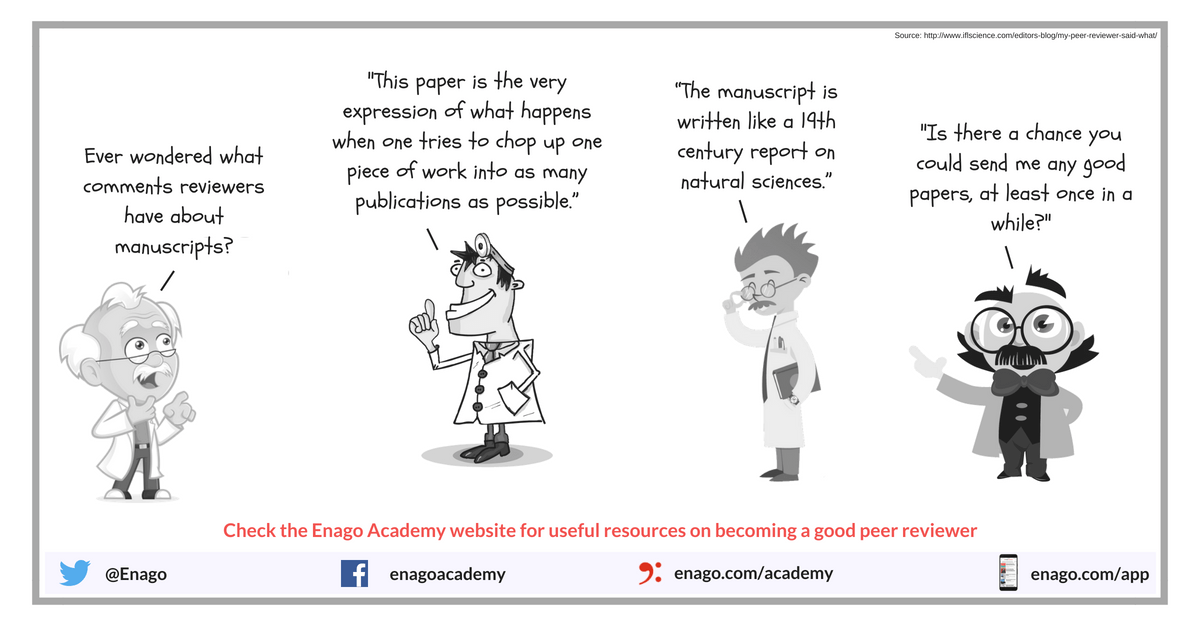How to Respond to Reviewer Comments and Revise Your Research Paper

As a researcher’s success depends on his ability to publish his work in an international peer-reviewed journal. For most researchers, completing the daunting task of conducting the research and compiling the data into an articulate manuscript is a complicated process, and for ESL authors who are trying to get their papers published in international journals, the process is even more time consuming and intensive. The peer review process can be both rewarding and frustrating. The hope for most researchers is to receive a positive review with reviewer comments that require a response before re-submission. Here we present ideas and hints that will help both ESL researchers and new researchers understand how this process works and provide guidance that will hopefully make the task of responding to reviewer comments less stressful.

Tackling Reviewer Comments
The type of reviewer comments can be quite drastic from simple grammatical errors that need to be addressed to more comprehensive comments regarding redesigning experiments and compiling new data. Generally, reading through the reviewer comments for the first time can be quite overwhelming as one attempts to identify what the reviewers are actually looking for and how these questions can be addressed. Therefore, what should be the right approach to take when responding to reviewer comments? We have listed down some simple tips that have been recommended by many accomplished academics and editors:
-
Wait!
After receiving your review and reading through it, take time to consider the comments and think about the overall feedback. Do not start your response and revision right away—give it a couple of days.
-
One Step At a Time
When you are ready to start, a helpful approach is to resolve one comment at a time. Read it and understand what it is actually asking, and then make notes of how you will respond and what you will be required to do to make the changes in the manuscript. This process should be repeated for all of the comments before actually making the corrections.
-
Start with the Easy Tasks
Read through the comments and fix anything that seems to be a simple request. Also, it often helps to highlight your responses somehow as you finish them; this will help you can see your progress and determine the extent of changes that are required.
Comment: Please focus the introduction on
your study and your results. In
particular the last two sentences are
vague.Reply: The introduction has been amended.
-
Reanalyze Data and/or Design New Experiments
This can be the most laborious and tedious part of preparing your re-submission draft. Determine what is necessary in order to make resolve the issues reported by the reviewers, and if certain requests are beyond the scope of your study (this happens quite often), then address the comment and provide your explanation for not making the revisions at that instance. If the experiments requested are intriguing and seem like something you would pursue in the future, you can inform the reviewer accordingly.
-
Agree to Disagree
You might observe that you disagree with some of the comments. If this is the case, explain why you disagree and support it with previously published literature. Often, a reviewer may miss a point or may not have seen part of your data, which can be easily addressed in your response.
Comment: The sentence “XYZ…..” seems vague.
Reply: The aim of drafting this sentence is to…….
-
Be Thorough but Concise
When writing the response, ensure that you provide a detailed and succinct response to each and every point that the reviewer has identified. This is what the reviewer is looking for and increases your chances of getting an acceptance.
-
What Changes Did You Make?
Ensure you clearly highlight the changes you intend to make. Most editors like to know where the changes have been made in the revised version of the manuscript. Also, while revising a manuscript, do not add details about the line numbers and page numbers, because they will continually change as you make revisions.
-
Do not Forget to Make All Changes!
After you have completed your response and made changes to your manuscript, always re-examine your response again line by line to ensure that all of the changes that have been mentioned are visible in the manuscript. Also, you should always ensure that your revised manuscript and responses are error free and easy to read; this is important as some reviewers will only read the response and not actually read through the complete manuscript. If your response is complete and clearly addresses all of the issues that have been identified, you increase your chances of receiving an acceptance.
Perseverance
Although addressing each reviewer comment and concern is tedious, ensuring that you respond to each of them is important as it makes the reviewer feel you respect his/her opinion. Finally, as an author you need to be assured that the peer review process helps you provide an improved manuscript and of much higher quality than the original submission. Also, the readers of your manuscripts have to go through the task of answering reviewer comments and revising studies in order to create a publication-ready manuscript.
How did you respond to the reviewer comments on your research manuscript? Were they all positive and included constructive feedback? Let us know your thoughts in the comments.










Certain sentences should be put as specimen.
Hi Abdullah,
Thank you for your feedback. We have included few examples for a better understanding of the topic.
Usually I don’t read article on blogs, but I would like to say that this write-up very compelled me to take a look at and do it!
Your writing style has been surprised me. Thank you, very nice post.
Your sharing of helpful information is much appreciated. It helped me with my research paper. Thanks for the blog. It appears interesting and contains useful information. If looking for a writing service? Visit WriteMyPaper.Help here: https://www.writemypaper.help/
Thanks for this blog, it is very informative for my research, I get to know where I need to focus more, thanks again.
Thanks For sharing